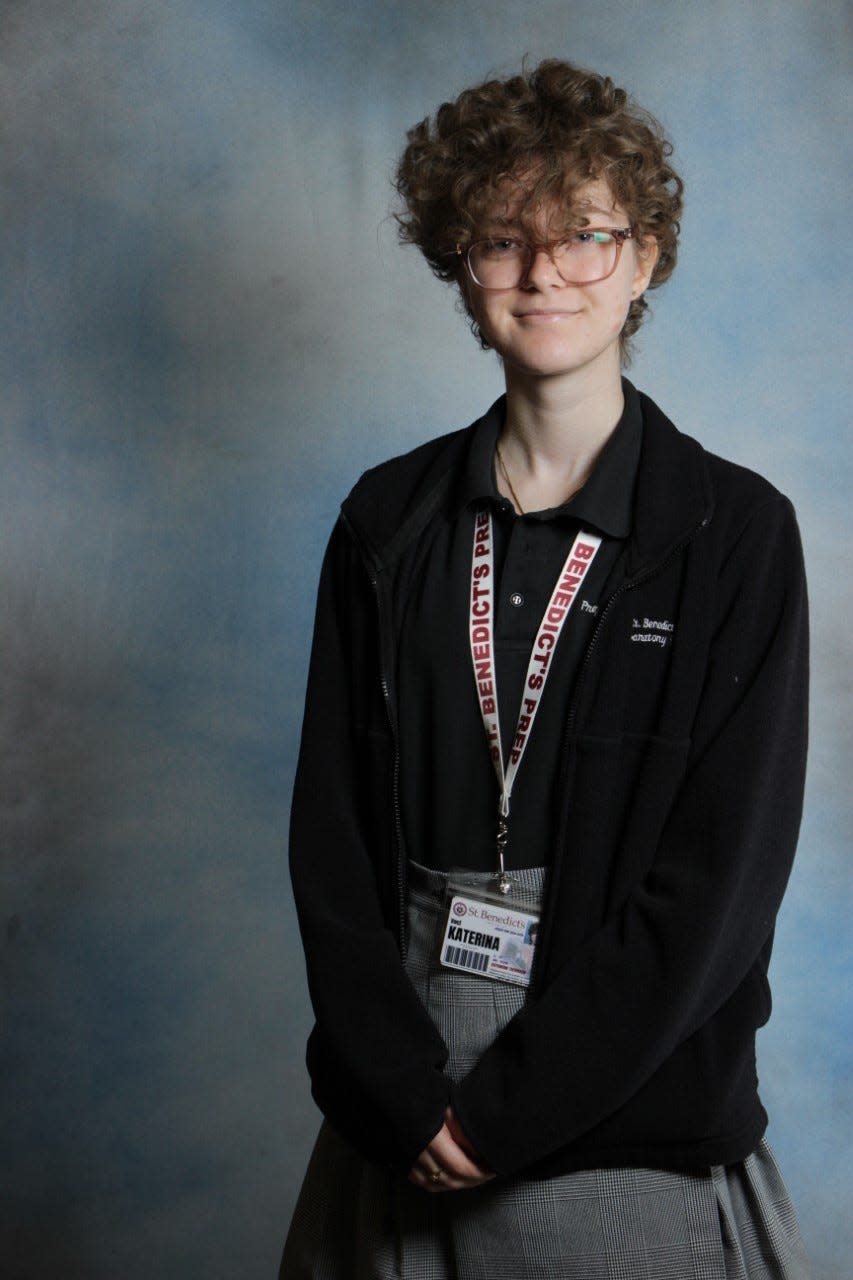School counseling needs to be a priority. Too much is at stake | Opinion
Plenty of adults — psychologists, academics, public policy makers and others — have weighed in on the grim statistics released by the Centers for Disease Control and Prevention in February on the mental state of teenage girls. Results of the 2021 Youth Risk Behavior Survey cited unprecedented levels of persistent sadness and hopelessness among adolescent females, the first time the biennial report measured the well-being of the nation’s youth since the COVID-19 pandemic began. What do teenage girls make of the fact that nearly three out of five girls feel persistently sad, double the rate of boys?
Katerina Voci, a senior at St. Benedict’s Prep in Newark, offers a personal perspective along with reasons she advocates for more school-based counseling services.
Honestly, I’m not surprised that 57% of teenage girls feel persistently sad and hopeless or that the level of sorrow reported by the CDC represents a 10-year high. It confirms my own struggles with anxiety and sadness — issues I’ve seen a lot of my peers struggling with as well. I was always a pessimistic kid, but my mental health took a turn for the worse in middle school. I was subjected to teasing and mocking from classmates that is sometimes regarded as harmless but really isn’t. It was hard to trust people, so I closed myself off and didn’t make much effort to get good grades or connect with others.
Things improved my freshman year of high school. For the first time, I felt truly comfortable in school. It was an all-girls Catholic school, homey and very community centered. I clicked with my English teacher and even began seeing a school counselor, though I didn’t say a whole lot in our sessions. Then COVID-19 hit in 2020. School instantly became virtual and the high school that felt like home announced it would close in June. I transferred to another high school but it wasn’t a good fit and I had a hard time academically and emotionally. My grades tanked and everything felt pointless. I had stayed in touch with my freshman English teacher, Ms. Charlotte Searcy and my freshman math teacher, Mrs. Anduela Zylyfrtari, and with their encouragement, transferred again to the new Girls Prep Division at St. Benedict’s Prep in Newark.
After my first high school closed, I didn’t expect to try counseling again. I didn’t expect to find Miss Simena Carey, my counselor from freshman year working at St. Benedict’s, nor did I know that a lot of resources were available to me, or that 40% of students participate in individual or group therapy at the school. By the time my junior year started, I was tired of feeling sad all the time. I wanted to feel something different and began counseling with Miss Carey again.
This time I opened myself up more. In counseling, I talked about my negative self-image and eventually learned to accept my appearance, my personality, and other things I didn’t like about myself. I also realized that I couldn’t magically change circumstances or the people around me; I had to listen to the viewpoints of family members and others and learn to compromise. Most importantly, I started to express myself more and kept stuff bottled up inside less.
My grades shot up, I went from Cs and Bs to As. I communicate more now and don’t worry as much about other people’s opinions of me. I co-facilitate the Scarlett Queens Bees group with Miss Carey — a support group of girls who meet each week at our counseling center to talk about our anger, anxiety and depression and to understand that we are not alone. I’m also making decisions about college and genuinely excited about the next chapter after high school graduation.
I have come a long way in 18 months, but I also know that you can’t “fix” mental health. You have to keep working on it, improve, and use the tools that are provided in order to help yourself through. Of course, there are always going to be setbacks, but one of the most valuable things I’ve learned from counseling is how to pick myself up and keep working through it. Very few girls have access to the kind of help I found at the Steven M. Grossman Counseling Center at St. Benedict’s or attend a high school where working on your mental health is celebrated rather than stigmatized.
Someone recently asked me why I thought girls are significantly sadder and feel more hopeless than boys. I can only speculate. Perhaps it’s pressure so many young women feel to look a certain way. Or the race to appear the happiest on social media or the letdown one feels when your feed is filled with the perfect-seeming lives of influencers. Do the reasons even matter? Social media isn’t going anywhere and if emotional issues remain unaddressed it only puts girls at greater risk for even more self-destructive behaviors. School counseling shouldn’t be an afterthought and funding should be an urgent priority because it can positively impact young people during the most vulnerable times of their lives. This is the time for students to focus and work on improving our mental health. If we don’t understand ourselves right now, it’s going to be a lot more difficult to understand and work on our issues in the future.

This article originally appeared on NorthJersey.com: Female NJ teen mental health school counseling

